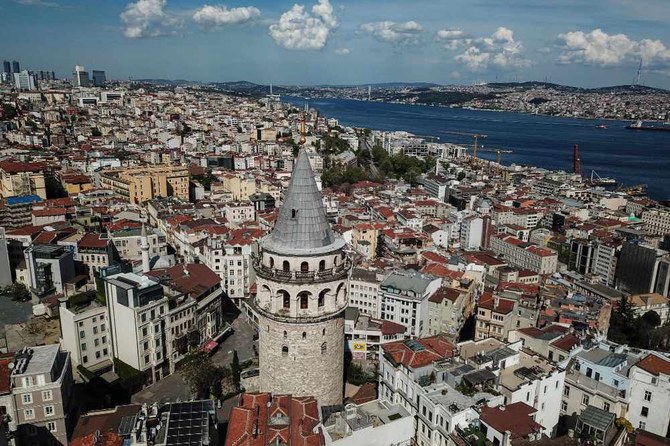ANKARA: Turkey is burning through its reserves of foreign currency in a futile attempt to prop up the collapsing lira, and may run out of US dollars by July, economists told Arab News on Saturday.
President Recep Tayyip Erdogan is also facing a double economic challenge from the coronavirus pandemic — the soaring cost of lockdowns and movement restrictions to curb the spread of the virus, and the fact that COVID-19 will prevent the usual summer tourist boom.
The Turkish lira has lost 14 percent of its value since January, and about 36 percent over the past two years. Last week it plunged past the psychologically significant level of seven to the US dollar.
In response, Turkey’s central bank has supplied $32 billion in foreign reserves for state banks to support the lira in the first four months of this year, the same as the whole of last year.
The central bank’s own hard currency reserves fell to $25.9 billion in mid-April from about $40 billion at the start of the year.
One foreign exchange trader estimated that the central bank’s reserves fell into negative territory last week, by $2 billion. “No country can withstand such rapid reserve losses for a long time,” the trader said.
Analysts at TD Securities have estimated that Turkey may run out foreign currency reserves as early as July if the pressure on its currency keeps intensifying

A lightning strikes over the Bosphorus in the night in Istanbul on May 2, 2020. Analysts warn of dark skies ahead as the soaring cost of lockdowns and movement restrictions to curb the spread of the virus take their toll on the economy. (AFP photo / Bulent Kilic)
Central bank governor Murat Uysal has admitted that the COVID-19 pandemic has produced “extraordinary conditions” in which there may be volatility in the bank’s financial buffer. But Wolfango Piccoli, a political risk analyst at Teneo Intelligence in London, said the bank’s policy was unsustainable because it had insufficient resources left to manage the downturn.
“Even if it manages to get swap lines from the US Fed, that would only give some time, but will not fix the ongoing financial problems,” he told Arab News.
“And these swap lines will be of very limited amount, and are unlikely to provide a significant breathing space for the currency.”
Piccoli said Turkey’s monetary and fiscal policies lacked credibility in the eyes of markets, and attempts by the central bank to sustain the lira make that lack of credibility even worse.
Turkey is also facing the collapse of its tourism industry. The central bank’s latest annual inflation report projects that “the loss in tourism revenues will bring important reflections on growth, employment and the current accounts balance.”
Loss of tourism revenues for the remaining three quarters of the year may reach $25 billion.
Experts also note that about two-thirds of these tourism revenues are collected in the summer months, which will be also a “lost period” because of the continuing effects of the coronavirus pandemic.
























